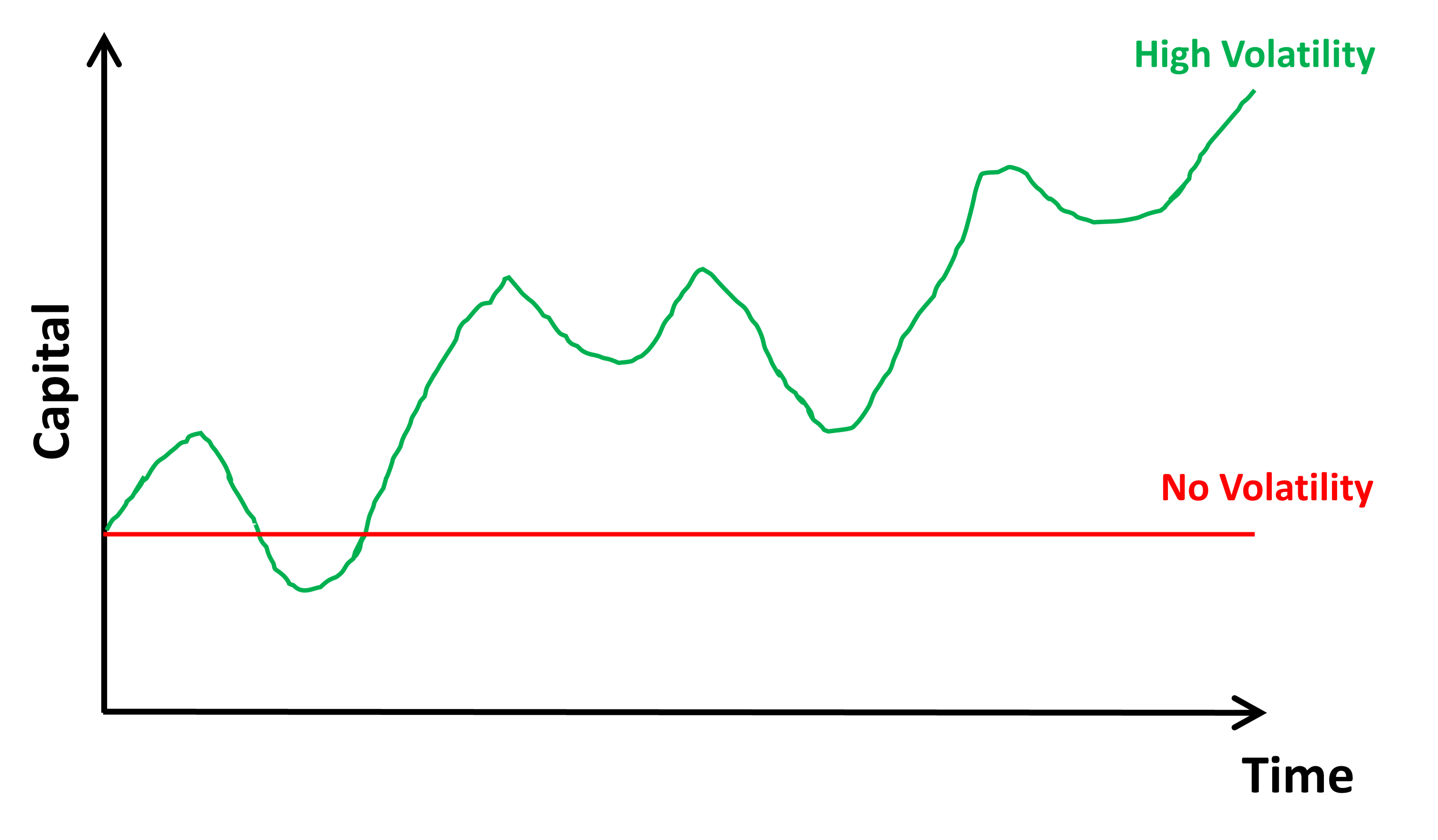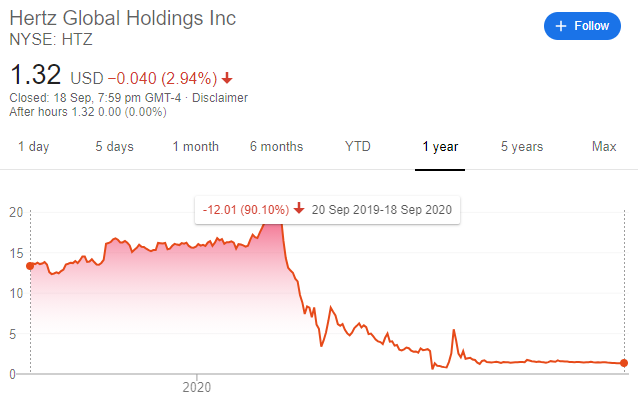We are all made up of our habits.
If we have a habitual routine to go the gym every morning, then developing a fit body comes almost naturally.
The same thing goes with investing.
If we have positive investing habits, then making profits from the stock market over the long run comes naturally as well.
However, what separates a successful investor from an average one.
Here are the 7 habits of highly successful investor.
Habit 1: Have A Game Plan

Before a successful investor put on a trade, he is not deluded to think that he will definitely be correct.
He does not think that he is able to catch the top or the bottom - as he already knows that it is impossible to do that consistently.
Instead, whenever he intend to buy a stock, he already know the answers to these questions:
- What price to buy the stock at.
- When to sell the shares for a profit.
- When to cut losses when proven wrong.
Most beginner investors will only know the answer to question 1.
They fail to consider question 2 and 3 - which is why, more often then not, they always suffer from emotional roller coasters when the stock price swings.
And what do they do next?
They read the news, trying to "understand" why the share price dropped so much.
In reality, most of these news are not even useful in helping you to make investment decisions.
And successful investors recognise that.
What successful investors do instead, is they focus on the fundamentals of the company rather than on the news.
Besides, they have a much longer outlook on their stocks as well - so short term price movement doesn't bother them.
Habit 2: Understand The True Concept Of Risk

Most people confused volatility with risk.
They say things like, "The stock price is very risky, therefore it is risky."
If that statement is true, then doesn't it mean that putting your money in the bank is risk-free?
After all, leaving cash in the bank has no volatility right?
Wrong.
Leaving your money in the bank is much more risker - you have just guaranteed your money to be eroding to inflation.
Here's what it looks like to me:

Don't get me wrong, I am not asking you to put your money in a highly volatile stock.
That's not the idea.
The idea is to show you that the concept of risk equals volatility is not true.
You will need volatility in order for your portfolio to grow - accept that, embrace that.
So if volatility is not risk - what is the true concept of risk then?
Risk is the maximum you will lose in the worst case scenario.
So let's say you bought 100 shares of Facebook at the price of $200 each.
This means that you spent $20,000 on Facebook shares.
What's your risk, then?
That's right - the maximum you will lose is $20,000 when the share price of FB falls to zero.
You might be thinking, "Gin, how is it possible that a stock like Facebook falls to zero?"
You are absolutely right - it is extremely unlikely.
But what if you have invested into a crappy company instead (especially when they blindly follow stock tips).

Yup - this fell by 90.10% in the span of 1 year.
So yes, it is possible that you can lose most of your capital in an investment.
How do we then manage this risk then?
We already define the concept of risk to be the 100% loss of your capital. And we manage the risk in two ways:
- 1Minimise the probability of risk. Invest in quality companies so the possibility of the stock suffering huge drops is drastically decreased.
- 2Minimise the max loss of risk. This is done by reducing your capital investment in each stock by designing proper portfolio diversification
This is why I always emphasize to invest in quality companies and also to have a portfolio diversification.
You can find out more about this in the Stock Investing Hub.
Habit 3: Know Yourself As An Investor

Successful investors know themselves very well.
They have the courage to say that, "while this strategy is proven and makes money, it does not suit me."
If you want to know yourself better as in investor, you need to answer these questions:
- 1What Time Frame Suits my Lifestyle
- 2Am I a capital-growth investor or a cash-flow investor?
Many times, it really depends on the timeframe you are comfortable with.
There are some investors who are not comfortable with the idea of buy and hold because it takes too long to see significant profit.
There are investors, who hate the idea of trading because it takes too much energy and attention.
There are investors who only want to look at their portfolio only once a month.
There's nothing wrong with trading or buy-and-hold. What's important is that you understand what will suit your lifestyle.
If you are a busy person, then perhaps buy-and-hold might suit you.
If you want more active management over your portfolio - then perhaps a shorter time-frame suit you better.
In either case, you still have to develop the relevant skill sets for your respective timeframe.
More About Gin: Personally, I am not a short-term trader but more of an investor. Because I believe that the stock market is a place for you to exchange money for more money and NOT time for money.
The next thing to consider is if you are a capital growth investor or a passive-income investor.
As a general guideline, if you have a smaller portfolio - you shouldn't focus on passive income.
You want to reach your critical capital mass as soon as possible. A critical capital mass is the amount of capital that will allow you to become financially free. Check out the "Financial Freedom Calculator" in the Downloads Page to figure out your critical capital mass.
With a smaller portfolio, you can grow much faster because the amount of dollar risk is smaller.
You shouldn't use the same investing methodology when growing a small portfolio of below $10,000 the same way as how you manage a $100,000 portfolio.
If I started all over again, with a small portfolio - I will be laser focus on capital growth.
Habit 4: Be Anchored In Fundamentals

In investing, we want to anchored in fundamentals no matter the "noise" around us.
There were many people who told me Facebook was expensive, and I appreciated their comments.
But it was undervalued from perspective. So I bought it anyway.
Does it necessarily meant they were wrong? Well, it could be that they looking at a different timeframe.
Or it could be that they are just talking about the "absolute" share price...which is one of the worst reasons to say a stock is "expensive".
There are also people out there who are constantly waiting for product launches, a specific event like the release of the new iPhone - and they buy because of the hype.
And there were many people who tell me rubbish like:
"Apple is releasing the new iPhone next month, the share price will definitely shoot up."
Really? Then why don't you sell your house and put all your money in Apple? You can get a bigger house by next month." - what I usually reply.
Well, Apple share price could really go up - but we never want to buy because of someone's sweeping statement that are anchored in opinions. Worse still, when they themselves did not even invest in these companies.
(And trust me, I have heard rubbish like these all the time.)
These are the type of "noise" you will face as an investor - and you have to be anchored in your fundamentals.
Focus on investing in quality companies, manage your portfolio, and the stock market will reward you in the long run.
Habit 5: Comparison Is The Theft Of Joy

It is easy to fall into the trap of comparison when someone post an image of how he made $32,576 in one investment.
That person could have have already built a multi-million dollar portfolio, and these gains are only 3% gain on his portfolio.
So don't be discourage and think to yourself, "why are my returns so little".
Very often, I will advise people to look at your percentage returns on your investment portfolio.
I still remember the first year of investing, I only made $2,587.
And I remember I was rather disappointed because my mentors were making much more than this amount and I felt I was so far away.
However, what changed my perspective was that $2,587 was actually more than 10% return on my portfolio. And because of that, I realised that I was actually doing pretty decent as a beginner investor.
So always look at your investment percentage returns and strive to do beat your own record.
Never be disheartened when starting small, a thousand mile journey begins with a single step and we all have our own journey.
Habit 6: Build Systems

When I was learning about building businesses, there is one quote that I will always bear in my heart.
If you want to be successful in business, you need to remove yourself from the business.
What does that mean?
It means that even if you were to go for a holiday for a few weeks, you already have systems in place to continue running the business.
That is why building systems is so important.
For example, I have a system for finding stocks using the Funnel Method.
I have a system of valuating stocks using the Thermostat Method.
I have a system to determine when I should add more positions if the share price falls.
I have a system to determine when I should cut my losses.
All of these are built so that I can have a stress-free investing journey, which is also why I spent less than 30 minutes on the stock market every week.
And if you are currently a full-time collar worker, you definitely want to build systems for your own investing strategy as well - so that that you don't have to spend too much time on the stock market.
Habit 7: Be A Life-Long Learner

It is important to recognise your end goal for investing.
And I know that for myself, it is to become financially free as a full-time investor and educator.
To do that, I needed two things:
- A critical mass of capital
- A strategy to create consistent returns from the stock market
I have always been investing in myself to develop skill sets to achieve these two objectives.
I seeked out mentors and learned about building online business, investing in properties, stock market investing and trading.
Because you have to remember that, you are your greatest asset.
The best investment you can ever make is in yourself.
But most importantly, is to focus on mastering one skill set at a time.
On my calendar, I have monthly goals that I have set for myself - and these goals are most of the time outside the realm of stock investing such as:
- Success Mindset
- Facebook Ads
- Property Investing
- Systematic Trading
And I consistently develop these skills sets in order to improve myself so that I can reach my goal as a full-time investor/educator.
Conclusion

So these are the 7 traits that I saw in successful investors such as my mentors.
My favorite is habit 7, what about yours?
Leave a comment below and let me know 🙂
By the way, if you want to learn more about investing - why not check out our free resource - The Stock Investing Hub, where you will discover the framework of stock market investing.
